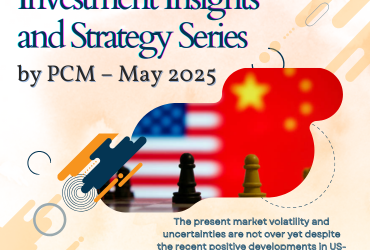* PhillipCapital Malaysia has recently conducted a quick poll on Instagram over 100 respondents to study the financial behaviour of individuals in Malaysia.
Do you ever feel like you don’t know where your money goes every month and you can never save much from your salary? Do you know that an average Malaysian contributes 11% to the Employees Provident Fund, around 0.5% to the Social Security Organization (SOCSO) and roughly 0.2% to the Employment Insurance System (EIS) before getting their net pay? So, what’s left have to be divided into paying off loans, taxes and monthly expenses. But, what about savings? This is why a solid financial plan needs to come into play.
You need to construct a financial plan that will work just for you, because different people have different commitments and needs. How can you plan and manage your finances better?
- Time to be conscious of your monthly expenditures
According to the poll, almost a quarter of the respondents do not know how much of their salary goes to provident fund, loans, taxes and expenses. Knowing where and how much money you spend per month on fixed expenses will allow you to have a clearer idea of how much you need to save and budget in order to achieve your long term financial goals. Whether you want to adopt a tighter budget, create a cash reserve, or better manage your cash flow, getting a more detailed picture of your fixed and variable expenses will definitely help!
Most of us know how much cash is flowing into our bank accounts each month, but just how much is flowing out? It’s probably more than you think and chances are there are some areas to cut back, some expenses to trim.
- Track all your expenses (Yes, all!)
Making it a habit to keep track of your expenses will come in handy in situations where you find yourself spending more than you make or buying stuffs that you don’t need. It will give you a better consciousness of your spending patterns and address financially unhealthy behaviours. Many people find this habit cumbersome and tedious but it is actually really helpful for budgeting effectively. By sticking to it, you will be able to gauge the amount you need for essential expenses every month, and then be able to set aside an amount for savings, and finally even give yourself a treat with the balance… every once in a while, that is.
Tracking your cash flow by recording each purchase you make will eventually help you realise the difference between the wants and the needs when spending. This will keep you from overspending on “desires” rather than on needs. Once you have figured out where you can cut back, you can reduce spending unnecessarily and redirect the money for those expenses towards your savings.
- Everyone knows saving is important. But just how much is enough?
Most people save a portion of their earnings, but do they know how much do they need to put aside to be on the safe side? Basically, you have to make sure you have a financial buffer that can keep you afloat at a time of need (unemployment, unexpected car problems, unforeseen medical expenses, home-appliance repair, etc.) without having to rely on credit cards or high-interest loans. It is especially important to have an emergency fund if you already have debt to take care of, because this will help you avoid borrowing more.
So, how much should you save? There isn’t a one-size-fits-all number. It’s important to ensure that your savings and savings goals connect with your lifestyle and commitments. For one, the right amount of emergency fund you should have depends on your financial circumstances. A good rule of thumb is to have enough to cover three to six months’ worth of living expenses.
At the end of the day, no matter what stage of life you’re in, you are never too young or too old to save money. You can begin the journey by saving 5–10% of your monthly salary.
- Investing is the way to go, but can you start investing?
While saving is a crucial step in managing your personal finances, it is not enough when you are looking to build wealth and make the most out of your money. This is because money loses approximately 2–3% of its value per year due to inflation.
Relying on your salary may sustain you now, but it might not sustain you over the long term, particularly so in these times beset by high inflation. Therefore, most people invest because they understand this hard reality, especially, when they have bigger financial goals in mind like purchasing a house, saving up for children’s education and retiring comfortably. Thus, the return on investment (ROI), as long as it tops inflation rates, will help you not only maintain the value of your money, but also grow your money over the years. In the final analysis, it is this return that will allow your money, and wealth, to grow over time.
To invest, you have to start with big money right? Wrong.
Investing is a process like many other things. It is BECAUSE we don’t yet have big money that we need to start investing. In line with conventional wisdom, you don’t need to have a fortune to start investing. If you’re a typical working person or a beginner investor, you should know that it doesn’t take a lot of money to start investing. You can begin with as little as RM500, or even RM100, a month. If you have not worked this into a habit, like financially disciplined persons have, you can have it auto deducted with a regular saving plan. This makes it systematic and easy, and helps make saving and investing a habit for you in the longer run.
In summary it is important for us to realise that when it comes to saving and investing, not all investment instruments are for everyone, as different people have different needs, commitments and risk tolerance. Ultimately, it is incumbent on us to try to understand ourselves, to learn about the various forms and types of investments when embarking on this journey towards growing our wealth. Alternatively, you can also seek professional guidance from financial advisors if you are unsure of where to start.
In all, it is never too late to start planning your finances. The good news is that thanks to technology, there are now many easily available software applications out there to assist you. For instance, there are budget planning applications to help you chart your spending patterns, templates to track your expenses and investing platforms managed by experienced fund managers, which you can use to help you in your wealth management journey. To quote from the sayings of a wise sage, “a journey of a thousand miles begins with a single step”, hence, you should start by setting clear goals, making savings and investing a habit, learning and understanding the various forms of investments, and most importantly, start your journey by taking hold of and managing your finances.







